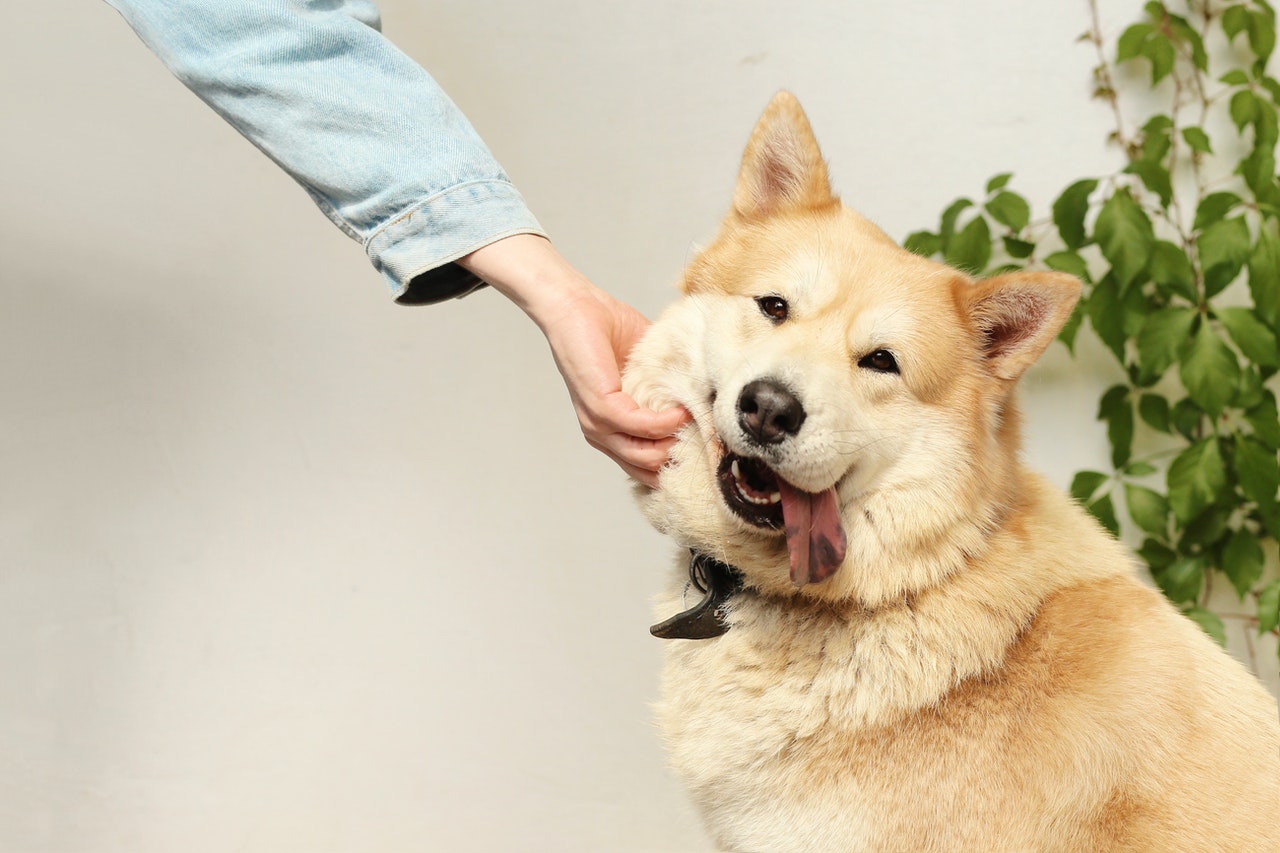Have you ever witnessed your dog dragging their bottom along the floor? If so, you're not alone! This embarrassing and unpleasant canine behavior is known as "scooting", and it's more common than you might think. Left unchecked, scooting can progress into more serious issues such as inflammation and infection of the anal glands.
But what causes scooting in dogs? And what can you do to stop your pup from wiping their butt on your carpet? In this post, we'll examine the most common causes of scooting in dogs. We'll also share some simple tips to help you keep your dog healthy and prevent issues that can lead to scooting.

What Causes Scooting in Dogs?
Dogs scoot in response to pain or discomfort in their anal region, which can be caused by a number of things. Here are some of the most common reasons for scooting in dogs:
Impacted or Infected Anal Glands
The anal glands are two small sacs located on either side of the rectum. They produce a smelly, oily substance that's thought to help dogs mark their territory. Ordinarily, the glands empty on their own when dogs defecate. But if they become impacted, your pup may attempt to express (empty) them by dragging their backside across the ground.
Impacted anal glands can sometimes become infected, causing redness around the anus and scooting behavior. If you notice any of these symptoms, make an appointment with your veterinarian. They can express the glands for you and prescribe antibiotics if needed.
Adverse Food Reactions
Adverse food reactions can lead to soft stools and diarrhea in dogs. As a result, the anal glands may not be fully expressed during bowel movements. This can lead to impacted anal glands and scooting behavior. If you think your dog may have a food allergy or intolerance, please visit your veterinarian as soon as possible so they can be correctly diagnosed and treated.
In order to diagnose an adverse food reaction, your veterinarian may place your dog on an elimination diet. This involves feeding a specialized diet that's restricted to a single-source novel protein your dog hasn't eaten in the past. Usually, an elimination diet will last for several months. During this time, it's important to stick closely to the diet and avoid feeding foods or treats that may contain allergens.
Intestinal Parasites
Scooting can sometimes be the result of intestinal parasites like hookworms, roundworms, and tapeworms. Dogs with worms often suffer from diarrhea, which can lead to impacted anal glands. And as disgusting as it may sound, worms can cause itching and irritation around the anus, which can also lead to scooting.
If you think your dog may have worms, it's important to visit your veterinarian so they can diagnose the problem. The good news is that intestinal parasites are relatively easy to treat with prescription medications. In addition, coconut fiber has been shown to expel intestinal worms from the GI tract. Later in this post, we'll show you an easy way to add coconut fiber to your dog's diet!
What Else Can I Do to Stop My Dog from Scooting?
There are several steps you can take at home to support your dog's overall health and prevent problems that can lead to scooting. Keep on reading for our top tips.
Feed a High-Quality, Species-Appropriate Diet
We recommend feeding your dog a high-quality, species-appropriate raw food diet to support their overall health and help prevent impacted anal glands. A good diet should consist of ingredients such as muscle and organ meats, raw eggs, and fresh fruits and vegetables.
A high-quality, species-appropriate raw food diet will help ensure solid stools and provide all the nutrients your dog needs to stay healthy. Check out our previous post for more information about choosing a species-appropriate home-prepared or high-quality commercial diet.
Protect Your Dog Against Intestinal Parasites
Protect your dog against intestinal parasites by taking steps like scheduling regular checkups with your veterinarian, keeping your yard clean, and making sure your dog always has access to clean water. Please refer to our guide, How to Protect Your Pet From Intestinal Parasites, for detailed information on this topic.
As we mentioned earlier, adding coconut fiber to your dog's diet has also been shown to help eradicate intestinal parasites. In the final section of this post, we'll explain more about the benefits of coconut fiber and how to add it to your pup's diet.
Give Your Dog Coconut Fiber
Feeding your dog coconut fiber is a great way to support their digestive health and help prevent soft stools that can lead to scooting. Insoluble fiber in coconut promotes regular firm stools, which plays a role in preventing impacted glands and keeping them clear.
Coconut is an excellent source of dietary fiber that has anti-inflammatory properties due to its medium-chain fatty acids (MCFAs). Coconut fiber is a blend of soluble and insoluble fiber, which acts as food for gut bacteria. It helps increase short-chain fatty acids (SCFA) in the gut and helps prevent and relieve symptoms associated with Crohn's disease, irritable bowel syndrome (IBS), Colitis, and other digestive disorders.
Unlike psyllium husk and other fibers, coconut fiber is unique in that it doesn’t contain phytic acid, so it won't draw trace minerals from the body. This means that it's a safe, natural option that can be given as part of your dog's regular diet.
CocoTherapy Coconut Chips is a unique coconut fiber made from gently dehydrated, raw organic coconut meat, with absolutely NO sugars, salt, preservatives, or chemicals added. Unlike other dehydrated coconut you can find in grocery stores, CocoTherapy Coconut Chips are specially made to breakdown easily in the small and large intestines. See how our organic Coconut Chips breakdown in comparison to other dehydrated coconut (video).
Adding CocoTherapy Coconut Chips to your dog's food is a simple yet effective way to take advantage of the fantastic health benefits associated with a high-fiber diet. And since our organic Coconut Chips are 100% human-grade, they're great for both dogs and people! Bake with them, add them to your smoothies and cereal or eat them right out of the bag as a wholesome snack. For your pets, serve them as a delicious snack throughout the day, or mix them into their food as a fiber supplement.
We’ve received numerous emails from customers telling us how CocoTherapy Coconut Chips have helped their dogs with chronic anal gland issues. In one notable email, an owner had several pugs who were plagued with chronic anal gland infections.
As a result, she needed to regularly take them to her veterinarian to have their glands expressed. Sometimes, the glands would be so infected due to being constantly impacted, that the vet needed to prescribe antibiotics. When she started giving them CocoTherapy Coconut Chips regularly, she was pleasantly surprised and thrilled to inform us that simply giving our coconut fiber alleviated and eventually controlled her pug’s anal gland issues.
Did you know that coconut fiber can also help prevent hairballs in cats? Find out how in our recent post!



